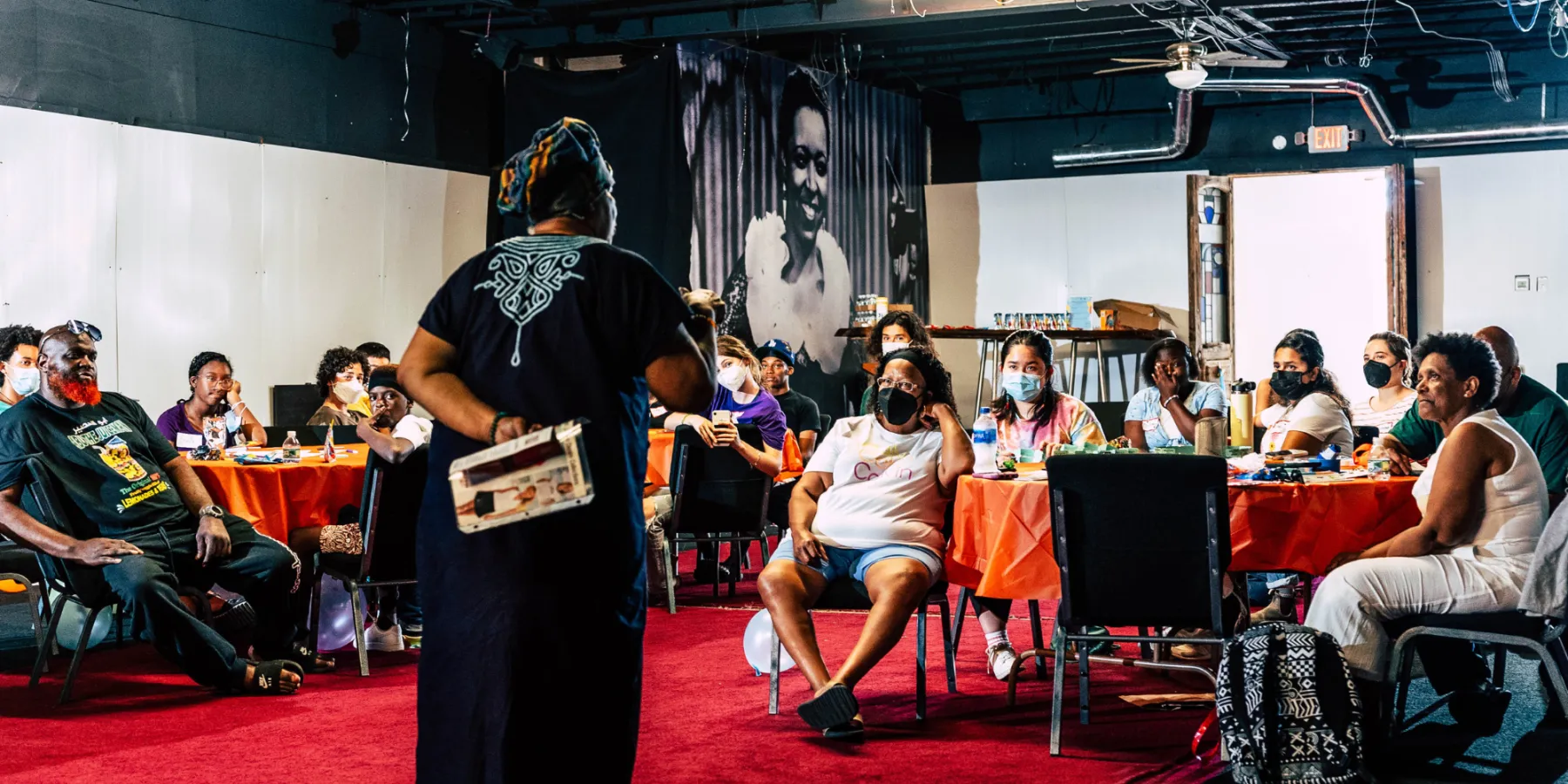Impact

Photographed by James Robinson: Chester partners and Chester Community Fellows hosted the Chester Justice Celebration, an event designed to foster deeper connections to cultural identity, environmental justice and civic engagement among Chester youth.
The Lang Center works with faculty, students, staff, and community partners to promote ethical intelligence, active yet reflective civic engagement, and innovative solutions to pressing social problems, all under the paradigm of Engaged Scholarship.
ES Map | Faculty-Led Initiatives | Field Collaborations | Signature Programs | Stories
Engaged Scholarship
Ernest Boyer coined the term “Engaged Scholarship” to describe teaching and research that connect “the rich resources of the university to our most pressing social, civic, and ethical problems” (Boyer, 1996 [pdf]). Engaged Scholarship denotes an orientation; engaged scholars direct their energies not solely toward an academic community, or toward the life of the mind, but also toward pressing public issues or shared problems. The term captures the ways in which the Lang Center connects the “three C's” of curriculum, campus, and communities for reciprocal gains.
We conceptualize Engaged Scholarship as extending to a broad range of approaches, including intensive collaborations with off-campus partners (community-based learning and community-engaged research); experiential learning that connects students with issues outside the classroom (field study, immersion experiences, or travel in connection with a course); and scholarship that resides on campus but aims toward social amelioration or public benefit. The Lang Center can offer resources—financial, human, and social capital—to facilitate any of these approaches for interested faculty or students. In other words, we can provide funding, expert advising in professional best practices, and connections to relevant partners on or off campus.
The Lang Center’s commitment to Engaged Scholarship means not only supporting teaching opportunities and developing new, public-facing research, but also assessing the social impact of our collective work in Chester and other locations where our Engaged Scholarship initiatives occur. This work requires significant input and participation — especially, that of community partners, faculty members, and students.



